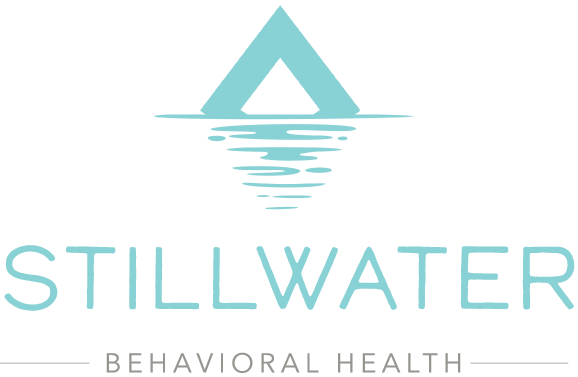Alcohol Detoxification
What is Alcohol Detoxification?

If a person’s body becomes physically dependent on alcohol or other drugs, they may require alcohol detoxification to overcome their withdrawal symptoms safely. Alcohol detoxification is defined as a medical treatment program that helps individuals overcome physical and psychological alcohol dependence.1
Detoxing from alcohol can be a dangerous and sometimes life-threatening process. Alcohol detoxification helps people establish sobriety and relieve alcohol withdrawal symptoms. A medically supervised alcohol detox program is especially important for people with comorbid psychiatric or medical conditions.
Questions about addiction?
Call Us Now: 1-866-232-9103
Your call is confidential with no obligation required to speak with us.
How Long Does It Take to Detox from Alcohol?
Depending on the setting, the timeline can vary. Alcohol detoxing at home, or in an inpatient or outpatient treatment center, can last anywhere from three to fourteen days. On average, it takes about six and a half days to detox from alcohol.
Benefits of Alcohol Detox
After completing an alcohol detox successfully, people will be substance-free and be better prepared to follow their ongoing treatment plans. Medically supervised alcohol detox programs are significantly safer than attempting an alcohol detox at home. During inpatient and outpatient alcohol detoxification, medical providers can provide helpful medications to reduce alcohol withdrawal symptoms.
Signs and Symptoms of Alcohol Detox
If you or someone you care about is struggling with alcohol usage, it’s essential to familiarize yourself with the symptoms of alcohol withdrawal. The following sections will explore mild and severe alcohol withdrawal signs.
Common Alcohol Detox Symptoms
- Sweating
- Nausea
- Vomiting
- Headaches
- Loss of appetite
- Depression
- Anxiety
- Irritability
- Restlessness
It’s essential to work closely with a medical provider to ensure safety throughout any part of the detox process.
More Serious Alcohol Detox Symptoms
Delirium Tremens
During severe alcohol withdrawals, an individual may experience delirium tremens (DTs). DTs can appear as severe disorientation, increased heart rate, breathing problems, and uncontrollable restless behavior. If you or someone you love is experiencing these symptoms, seek medical attention immediately. 2
Alcohol Detoxification Stages and Timeline
Before enrolling in alcohol addiction treatment, it’s important to be familiar with what to expect and what the timeline can look like. Keep reading on to learn about the three stages of alcohol detox and how long alcohol use disorder detox takes.
Alcohol addiction treatment programs typically classify the progression of symptoms into three stages.
Stage 1
During the first stage of alcohol detox, mild but still uncomfortable withdrawal symptoms will usually begin to surface. Common symptoms during this stage are insomnia, nausea, anxiety, vomiting, depression, and mood swings. These can usually appear on the same day or day after the person’s last drink.
Stage 2
Stage two side effects can include higher body temperature, rapid breathing, increased blood pressure, and an irregular heartbeat. Mental symptoms such as confusion or irritability can also appear. Stage two is when people start to experience stronger side effects. Stage two symptoms usually appear around one to three days after the date of last usage.
Stage 3
During stage three of alcohol detoxification, symptoms can become dangerous and life-threatening. DTs or shakes are severe symptoms associated with stage three. If someone attempts to detox from alcohol at home, it’s critical to contact a medical provider for immediate assistance if they experience stage three symptoms and they are not getting better. Stage three symptoms can start anywhere from three to ten days following the date of last alcohol use.2
Alcohol Detoxing at Home
For multiple reasons, some people prefer to detox at home. Some individuals also lack the resources to be able to access alcohol rehab programs. The following section will explore how to safely detox at home, the risks of at-home detoxification, and the benefits of participating in a detox program if one is able.
How to Safely Detox from Alcohol at Home
Following a medically supervised treatment plan is essential. Generally, a medical provider’s treatment plan will include baseline lab testing, screening for alcohol dependence severity, and medication management. Additionally, it’s crucial to have access to have a support person nearby and have access to safe housing. If an individual has a history of seizures, delirium, drug use, suicidal ideation, or severe illness, their doctor may not recommend home detox.3
At Home Alcohol Detox Risks
The risks of at-home detox can include severe withdrawal symptoms such as seizures or DTs. To mitigate these risks, a support person and a medically supervised treatment plan are imperative.
Medical Alcohol Detox Benefits
Constant medical care, direct supervision, and separation from a person’s using environment are all benefits of receiving care at an alcohol detox center. If possible, this avenue is generally the most beneficial for patients undergoing alcohol detox.
Alcohol Detox Treatment Options
Whether someone chooses inpatient or outpatient alcohol detox, there are advantages and disadvantages to both choices. The following sections will outline the pros and cons so that they can make an informed decision about which type of alcohol rehab is best.

Inpatient Alcohol Detox
When receiving care in an inpatient setting, the patient has access to constant medical care and supervision. Inpatient alcohol detox is also helpful because the patient is removed from potentially triggering people, places, and things. Some disadvantages of inpatient detoxification can be increased cost, disrupted schedule, and the inability to fulfill obligations.
Outpatient Alcohol Detox
Individuals with mild or moderate alcohol use disorders may find that outpatient alcohol detox is the best fit. Outpatient alcohol detox can be less expensive and time-consuming than inpatient alternatives. However, there is an increased risk of relapse due to triggers and easy access to alcohol. Outpatient alcohol detoxes are a bit more regulated than at-home detox programs as well.
Alcohol Detox Medications
When treating alcohol withdrawal syndrome, medical providers often prescribe benzodiazepines to prevent seizures and minimize discomfort. If you’re interested in medication management for alcohol detox, speak with a medical provider for professional guidance.4
Detox from Alcohol at Stillwater Behavioral Health
Stillwater Behavioral Health is an excellent resource if you’re ready to get help with your alcohol use disorder in a supportive, safe, and caring environment. At Stillwater Behavioral Health, clients can receive concurring mental health and substance use treatment in a luxury detox facility.
Call our friendly concierge team today to schedule an assessment or discuss your treatment options!


